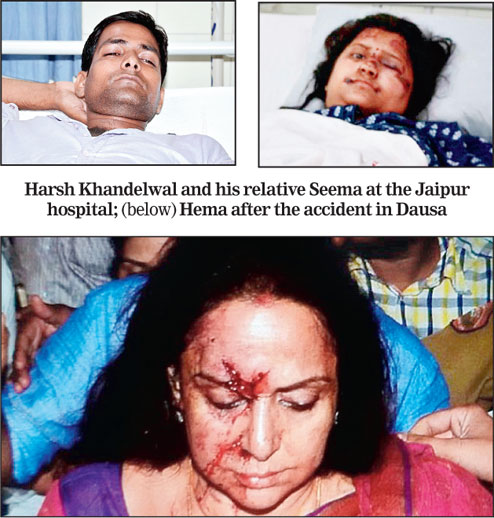
New Delhi, April 30: When the Suheldev Superfast Express was flagged off earlier this month, it ended a tradition the Indian Railways had jealously held onto through its long history: naming trains without political considerations.
This remarkable restraint over the decades had stood out in a country known for naming anything from stadiums and airports to awards and welfare schemes after the Nehru-Gandhis.
But on April 13, junior railway minister Manoj Sinha inaugurated the thrice-a-week express that connects Ghazipur in Uttar Pradesh to Anand Vihar in Delhi and is named after a medieval king believed to have defeated an Afghan invader in the 11th-century.
Suheldev, king of the Rajbhars, an Other Backward Classes community that is key to elections in eastern Uttar Pradesh, enjoys a near-deity status within the community.
By trying to co-opt B.R. Ambedkar and now Suheldev, political analysts say, the BJP has been trying to eat into what Mayawati's Bahujan Samaj Party considers its primary vote bank in the heartland. Elections are due early next year in Uttar Pradesh.
Railway ministry sources told The Telegraph that officials had protested last year when Sinha, Lok Sabha member from Ghazipur, proposed that the train bear the Rajbhar ruler's name.
"There were apprehensions as the proposal went against the traditional practice, but the minister insisted. When we objected, he got an endorsement from the Prime Minister's Office. After that we had no choice," a senior official said.
Another official, from the passenger marketing team that decides train routes and names, said only a handful of Indian trains had ever been named after personalities, and these had "nothing to do with politics".
"The Amrita Express in Kerala, for instance is, named after (spiritual leader) Mata Amritanandamayi and the Basava Express in Karnataka after a local social reformer. These names had been suggested by bureaucrats and were not motivated by politics," the official said.
The Gurudev Express, running between Nagercoil in Tamil Nadu and Shalimar in Howrah, is a joint tribute to Rabindranath Tagore and southern saint Swami Chinmayananda.
The official conceded that a train between Delhi and Raxaul in Bihar had been named in the late 1980s after Begum Abida, wife of former President Fakhruddin Ali Ahmed and two-time MP from Bareilly in Uttar Pradesh.
"But the records show that the name was cleared because of her artistic background and the train only ran very briefly," he said.
"What has happened now, however, might open a Pandora's box with similar demands pouring in from various quarters."
Contacted, Sinha merely said "Suheldev is used as an adjective in the Bhojpur region of UP" before hanging up. He did not take the subsequent calls from this newspaper.
"Except for certain categories such as the Rajdhani Express, Shatabdi Express and Sampark Kranti Express, trains are mainly named after landmarks such as rivers, mountains, regions and abstract qualities (such as the Ahmedabad-Pune Ahimsa Express)," V.K. Agarwal, former railway board chairman, said.
"Although politicians do have a say in which stations a train halts at, train names have largely remained untouched because of the railway ministry's practice of not entertaining political demands."
BJP sources said that Rajbhars, most of them landless labourers, on an average made up 18 per cent of the population in eastern Uttar Pradesh constituencies. In some Assembly segments like Sehar and Selampur in Ballia district, they account for 35 per cent of the vote.
"The Rajbhars can tilt the elections in 30 to 50 constituencies, so the party has been trying to woo the community," a BJP politician from Uttar Pradesh said.
"Traditionally they have been BSP supporters but we are hoping to alter the dynamics this time."
In February, BJP president Amit Shah had unveiled Suheldev's statue in Bahraich.
Even the state's ruling Samajwadi Party has been courting the community. Last December, Mulayam Singh Yadav had demanded that the Centre put Rajbhars on the list of Scheduled Castes along with 16 other "most backward communities" from the state.
According to legend, Suheldev, who ruled the Sravasti region bordering Nepal, defeated Syed Salar Masood Ghazi, nephew of Mahmood Ghaznavi, near the Chittaura lake close to present-day Bahraich city in 1033.
Not much historical accounts are available but Suheldev lives on in folklore. In 1950, the Rajbhars began a movement for a fair in Chittaura in his memory but the district administration denied permission and banned assemblies in the area. The order was withdrawn after a long struggle by the community.
Today, all the political parties invoke Suheldev's name to garner Rajbhar votes. Mayawati had installed several statues of Suheldev across the state when she was chief minister.











